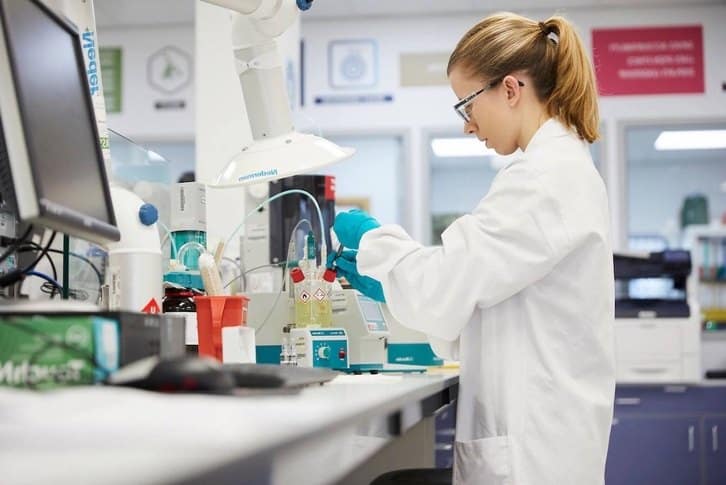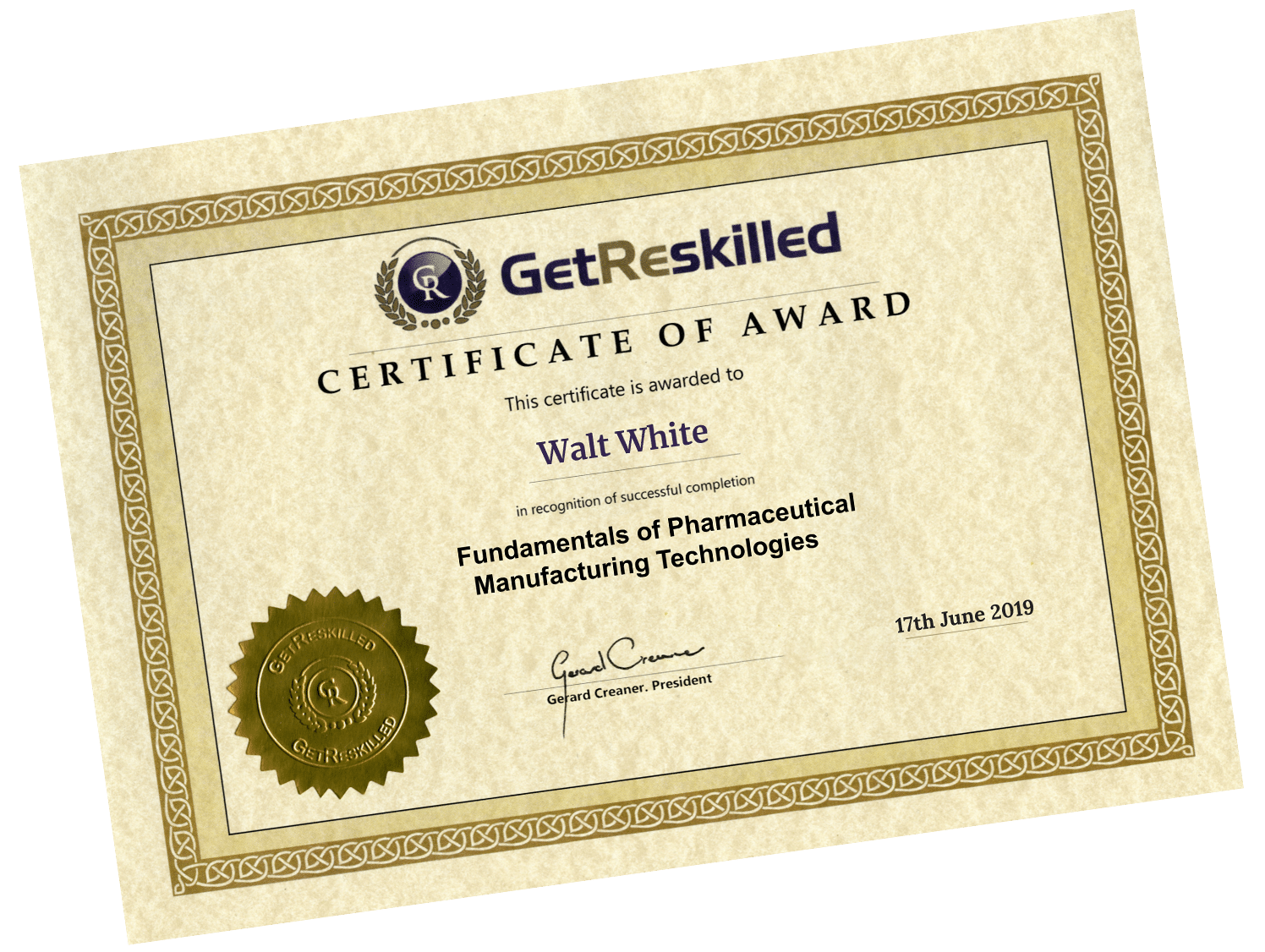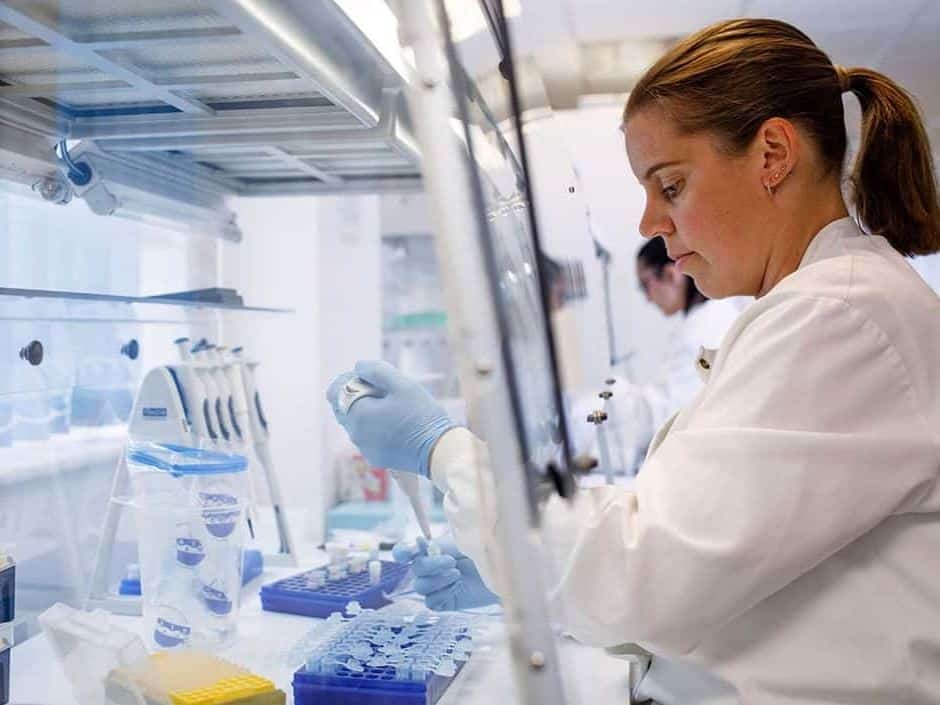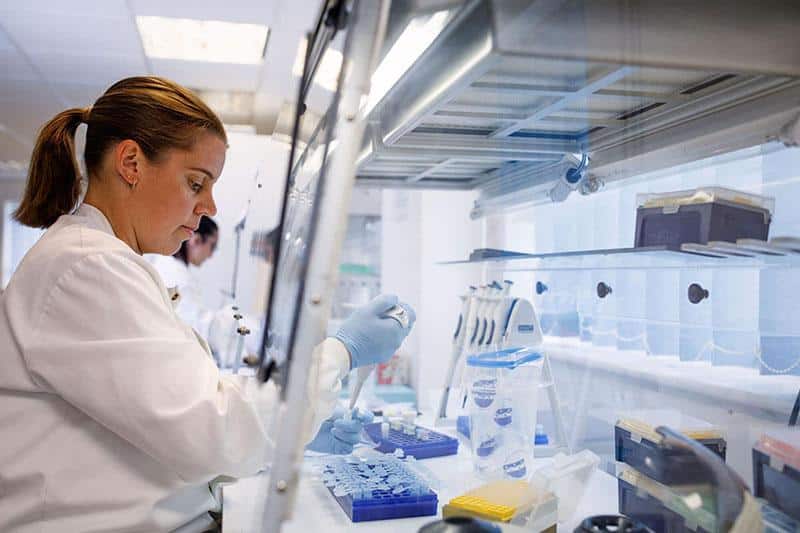Core content developed during the start-up of a pharmaceutical plant
This program was developed on-site by a team of biochemists and senior chemical engineers, working within an engineering consultancy during the start-up of a pharmaceutical plant to fill in the regulatory, risk management, GAMP, qualification, and validation knowledge gaps in its own new scientists and technicians.
You will write a technical report
You will write a 3,000-word technical report about the systems needed to consistently manufacture safe medicines and devices for patients. This is fundamental knowledge for any professional working in this sector
You will complete 7 quality risk management (QRM) workshops
QRM tools are crucial in the pharmaceutical manufacturing industry. They allow companies to
- manage potential risks that could compromise the quality of drugs
- identify and prioritize risks, assess their potential impact on product quality
- build product quality into the manufacturing process
We will guide you through the step-by-step process of using the seven different QRM tools. This is a fundamental skill for any professional working in this sector and a key outcome of this program.
Entry Requirements
This program is specialized so you MUST have the following:
PhD, Masters or a Degree in:
- Biochemistry
- Biotechnology
- Cell Biology/Molecular Biology
- Chemistry
- Immunology
- Microbiology
- Laboratory Science
- Any other Biological Science
- Any other Chemical Science
AND YOU MUST
- currently work in the field
OR - have worked or graduated in this field within the last 2 years
If not, check out our University Certificate in eBioPharmaChem

What kind of jobs could I get?
Depending on your previous experience, here are some of the most common job titles we see advertised;
Quality assurance is process-oriented and focuses on removing any variation from the processes of manufacturing. The role tends to be detail-orientated and documentation-focused.
- Quality Assurance Specialist
- Quality Assurance Associate
- Quality Associate Manager
- QA Specialist – Raw Materials
- QA Compliance Specialist
- QMS/QA Specialist
Quality control is product-oriented and focuses on testing samples from the manufacturing process to make sure they meet the required specifications and standards.
- Quality Control Microbiology Analyst
- Quality Control Specialist
- Quality Control Analyst
- QC Analyst,
- QC Scientist
- QC Drug Product Technologist
Science roles that support manufacturing – Typical roles support the manufacturing process in a regulated environment and work within multidisciplinary teams to produce medicinal products.
- Microbiology/Particle Analyst
- Process Sciences Manager-Upstream
- Environmental Microbiologist
- Bioprocessing Scientist
- Production Scientist
- Senior Scientist Technical Support
- Process Scientist / Specialist – Purification
- Process Scientist / Specialist – In-Process Control
Science roles in development is the “D” part of “R&D”. Development is the phase after research where the creation of a proven drug is moved from the lab to the manufacturing plant.
- Tech Transfer Scientist Jobs
- Process Technology Transfer Scientist
- Transfer Scientist
- Product and Process development scientists
Enrol in this course to learn…
- Introduction – to pharmaceutical, (bio)pharmaceutical manufacturing in a GMP (Good Manufacturing Practice) regulated environment, quality systems vs regulation vs validation.
- Quality Risk Management (QRM) – the huge importance of risk management and the steps involved in its application.
- GMPs vs Quality Management Systems – GMPs vs ISO 9001:2015 and why use them both.
- Industry Regulations and Guidelines – including, FDA GMPs for the United States, EMA GMPs for European Union, ICH, and PICs GMP regulation
- Good Automated Manufacturing Practices (GAMP) – software categories, scalable validation deliverables, and operation activities.
- API Manufacturing Technologies – organic chemical synthesis, aseptic & sterile manufacturing, separation technologies, and multi-stage sequence API synthesis.
- Biopharmaceutical Manufacturing Technologies – upstream processing, fermentation cellular protein synthesis, downstream processing, and column chromatography.
- Process Validation and Documentation – design and verification of manufacturing systems
- Cleaning Validation – engineering and chemical aspects of cleaning and cleaning equipment
- Key Manufacturing Technologies – tablet manufacturing, vial filling, and freeze-drying FDA vs EU medical device regulations and classification.
- Equipment Validation – IQ OQ PQ and Baseline Guide 5.
- Advanced Career Coaching – Advanced course on how to find a job in the pharma sector.
You’ll produce a number of deliverables throughout the course including…
- Complete 8-question booklets (one for every week’s worth of content) which will summarise what you have learnt for the week and ensure you retain and understand the information.
- Complete 7 Quality Risk Management workshops on:
- Fault Tree Analysis (FTA)
- Cause and Effect Analysis
- Failure Mode Effect Analysis (FMEA)
- Preliminary Hazard Analysis (PHA)
- Hazard Operability Analysis (HAZOP)
- Event Tree Analysis (ETA)
- Hazard Analysis and Critical Control Points (HACCP)
- Complete a 9-step application process simulation for a QA, QC or science roles in development or manufacturing using the relevant tools and techniques you have learned.
- Complete a 10-page report on “Why cGMPs are required for the manufacture of a life sciences product”.
- The key requirements of a quality management system
- The cleaning validation sequence and how to determine cleanliness levels
- The documentation of a complete risk management process in terms of identifying risk, analyzing risk, evaluating risk and controlling risk.
- The typical equipment and process stages used in the manufacture of active pharmaceutical ingredients
- The generation, storage and distribution of pharmacopeia grade Purified Water (PUW)
- The common cleanroom configuration and airflow direction that governs personnel and material flows in a biopharmaceutical manufacturing environment
Our pharmaceutical scientists will give you written feedback on your report
And take the following skills and knowledge to your new career
- You’ll have enough technical knowledge and understanding of the quality culture necessary to work in quality assurance roles, quality control roles, science roles that support manufacturing or science roles in development roles in this environment.
- You’ll have a solid understanding of how safe medicines and medical devices are made in a regulated GMP environment.
- You’ll have a foundational understanding of GMPs, Industry Regulations and Guidelines, Quality Risk Management Tools, GAMP, Equipment and Cleaning Validation
- You’ll be able to participate in root cause analysis and quality risk management (QRM) projects.
- You’ll be able to work with professionals in this sector without feeling lost or intimidated by the specialised terms and frameworks used in this sector.
Hear from people who’ve taken this course

John Ryan
“The course content material is concise and interesting”
“The professionalism and passion of the lecturers comes across in the tutorials which gives the student confidence and encouragement to keep on top of the course. The course content material is concise and interesting. The timing of the release of the lessons is perfect, the student moves at a comfortable pace, one step at a time.”

Ronan Balfe
“I would have no hesitation in recommending these courses”
“Studying online gives you the time to do the course in your own time yet with assignment deadlines this made you disciplined to meet the deadlines set. I would have no hesitation in recommending these courses to anyone wishing to gain an education in the pharmaceutical sector.”

Edel Harkins
“Highly recommended to anyone who has been out of the industry for a period of time”
“I would highly recommend anyone in my situation who has been out of the industry for a period of time to do these courses. They have contributed to my new found confidence in my existing and new qualifications, my improved interview skills and my new job!”
Your 15-week class schedule
Module 1 – Fundamentals in Pharmaceutical Manufacturing (Weeks 1-10)
This module was developed in consultation with the pharmaceutical manufacturing industry including Pfizer and MSD.
Module 2 – Advanced Career Coaching (Weeks 11-15)
Delivered by a practicing industry expert
Dr. Joe Brady
Full-Time Validation Lead
Lecturer, Technological University Dublin, Ireland
Senior Associate, GetReskilled
Dr. Joe Brady is a full-time practicing Validation Lead and an assistant lecturer with Technological University Dublin (TU Dublin), in the School of Chemical and Pharmaceutical Sciences. Joe is a certified trainer and highly experienced in competency-based training. He designs and prepares educational modules and full academic courses ranging from MSc, MEngSc. BSc, to Certificate level, for a range of academic institution.
He is also a supervisor for MSc/MEngSc and PhD theses. Joe has over twenty years of project experience in the pharmaceutical, biopharmaceutical, and medical device industries in Ireland, Singapore, China, The Netherlands, France, and the USA.
If you’re spending money on an education program, make sure you choose one you’ll finish!
With every GetReskilled ONLINE program;
- We use one centralized platform (Moodle) where you can log into your classroom anytime. Each week, you’ll watch videos and complete a series of quizzes, tests, interactive activities, and projects. The course materials are available 24/7 and nothing requires you to be online at a specific day or time. i.e there are NO ZOOM classes and NO WEBINARS! Study anywhere, anytime, for example after the kids have gone to bed or on the weekend.
- Your working schedules are unpredictable so we offer flexible delivery. Slow down, speed up or pause the delivery of the program.
- We release only one week’s worth of material at a time and then MANUALLY check your activity logs at the end of every week to make sure that you are keeping up with your work.
- You’ll have a dedicated course leader who will email or telephone you if it looks like you’re starting to fall behind. They will work with you to develop a study plan to get you back on schedule and finish the course.
This all helps us to spot any potential issues early and helps you completely finish the program.

Earn a Certificate of Award in the “Fundamentals of Pharmaceutical Manufacturing Technologies”
Earn by successfully completing a 3,000-word technical report about the systems needed to consistently manufacture safe medicines and devices for patients.
Add details of your certificate to your CV/Resume or your LinkedIn profile.

Price & Start Dates
Or $799/month for 5 months.
Price Includes:
- End of week progress checks by us to MAKE SURE you finish the program
- Delivered online so you can learn from home (or anywhere) on your own schedule
- Robust job hunting program that will seriously help you find a job
- Regular & ongoing access to a dedicated career coaching counsellor
No Hidden Fees
- No application fees
- No registration fees
- No resource/book fees
- No certificate fees
15-Day Fast Track Option with Priority Support available for an additional fee.
- Complete this program in 15 days.
- Your course leader will check your progress every morning and follow up with you to keep you on schedule.
- We can start you within 24 working hours upon receipt of payment.
- Contact us to get started.
Or €699/month for 5 months.
Price Includes:
- End of week progress checks by us to MAKE SURE you finish the program
- Delivered online so you can learn from home (or anywhere) on your own schedule
- Robust job hunting program that will seriously help you find a job
- Regular & ongoing access to a dedicated career coaching counsellor
No Hidden Fees
- No application fees
- No registration fees
- No resource/book fees
- No certificate fees
15-Day Fast Track Option with Priority Support available for an additional fee.
- Complete this program in 15 days.
- Your course leader will check your progress every morning and follow up with you to keep you on schedule.
- We can start you within 24 working hours upon receipt of payment.
- Contact us to get started.
Or £649/month for 5 months.
Price Includes:
- End of week progress checks by us to MAKE SURE you finish the program
- Delivered online so you can learn from home (or anywhere) on your own schedule
- Robust job hunting program that will seriously help you find a job
- Regular & ongoing access to a dedicated career coaching counsellor
No Hidden Fees
- No application fees
- No registration fees
- No resource/book fees
- No certificate fees
15-Day Fast Track Option with Priority Support available for an additional fee.
- Complete this program in 15 days.
- Your course leader will check your progress every morning and follow up with you to keep you on schedule.
- We can start you within 24 working hours upon receipt of payment.
- Contact us to get started.
Price & Start Dates
Or €699/month for 5 months.
Price Includes:
- End of week progress checks by us to MAKE SURE you finish the program
- Delivered online so you can learn from home (or anywhere) on your own schedule
- Robust job hunting program that will seriously help you find a job
- Regular & ongoing access to a dedicated career coaching counsellor
No Hidden Fees
- No application fees
- No registration fees
- No resource/book fees
- No certificate fees
15-Day Fast Track Option with Priority Support available for an additional fee.
- Complete this program in 15 days.
- Your course leader will check your progress every morning and follow up with you to keep you on schedule.
- We can start you within 24 working hours upon receipt of payment.
- Contact us to get started.
Or $799/month for 5 months.
Price Includes:
- End of week progress checks by us to MAKE SURE you finish the program
- Delivered online so you can learn from home (or anywhere) on your own schedule
- Robust job hunting program that will seriously help you find a job
- Regular & ongoing access to a dedicated career coaching counsellor
No Hidden Fees
- No application fees
- No registration fees
- No resource/book fees
- No certificate fees
15-Day Fast Track Option with Priority Support available for an additional fee.
- Complete this program in 15 days.
- Your course leader will check your progress every morning and follow up with you to keep you on schedule.
- We can start you within 24 working hours upon receipt of payment.
- Contact us to get started.
Or £649/month for 5 months.
Price Includes:
- End of week progress checks by us to MAKE SURE you finish the program
- Delivered online so you can learn from home (or anywhere) on your own schedule
- Robust job hunting program that will seriously help you find a job
- Regular & ongoing access to a dedicated career coaching counsellor
No Hidden Fees
- No application fees
- No registration fees
- No resource/book fees
- No certificate fees
15-Day Fast Track Option with Priority Support available for an additional fee.
- Complete this program in 15 days.
- Your course leader will check your progress every morning and follow up with you to keep you on schedule.
- We can start you within 24 working hours upon receipt of payment.
- Contact us to get started.
Price & Start Dates
Or £649/month for 5 months.
Price Includes:
- End of week progress checks by us to MAKE SURE you finish the program
- Delivered online so you can learn from home (or anywhere) on your own schedule
- Robust job hunting program that will seriously help you find a job
- Regular & ongoing access to a dedicated career coaching counsellor
No Hidden Fees
- No application fees
- No registration fees
- No resource/book fees
- No certificate fees
15-Day Fast Track Option with Priority Support available for an additional fee.
- Complete this program in 15 days.
- Your course leader will check your progress every morning and follow up with you to keep you on schedule.
- We can start you within 24 working hours upon receipt of payment.
- Contact us to get started.
Or €699/month for 5 months.
Price Includes:
- End of week progress checks by us to MAKE SURE you finish the program
- Delivered online so you can learn from home (or anywhere) on your own schedule
- Robust job hunting program that will seriously help you find a job
- Regular & ongoing access to a dedicated career coaching counsellor
No Hidden Fees
- No application fees
- No registration fees
- No resource/book fees
- No certificate fees
15-Day Fast Track Option with Priority Support available for an additional fee.
- Complete this program in 15 days.
- Your course leader will check your progress every morning and follow up with you to keep you on schedule.
- We can start you within 24 working hours upon receipt of payment.
- Contact us to get started.
Or $799/month for 5 months.
Price Includes:
- End of week progress checks by us to MAKE SURE you finish the program
- Delivered online so you can learn from home (or anywhere) on your own schedule
- Robust job hunting program that will seriously help you find a job
- Regular & ongoing access to a dedicated career coaching counsellor
No Hidden Fees
- No application fees
- No registration fees
- No resource/book fees
- No certificate fees
15-Day Fast Track Option with Priority Support available for an additional fee.
- Complete this program in 15 days.
- Your course leader will check your progress every morning and follow up with you to keep you on schedule.
- We can start you within 24 working hours upon receipt of payment.
- Contact us to get started.
Application Deadline: Wednesday 15th May
Program Starts: 23rd May
Start your application
Contact Details For This Course
Geraldine Creaner
Got more questions?
Chat with us by clicking on the blue chat bubble in the bottom right corner of the page. We usually reply within a few minutes to a few hours.
Or fill out the form below and we’ll get back to you in one working day.


